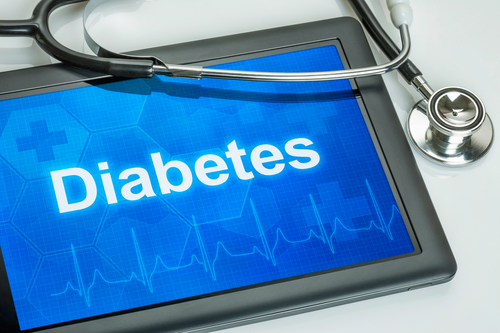Researchers sponsored by the National Institutes of Health (NIH) and the Foundation for the NIH (FNIH) extended a newly launched online library, known as knowledge portal, that permits open-access searching of clinical information and human genetic data on type 2 diabetes. The portal incorporates data from many global networks, gathered through decades of investigation.
The portal results from the Accelerating Medicines Partnership (AMP) for type 2 diabetes seeks to advance the research and treatment of the disorder. The portal will contain information from about 100,000 genetic samples collected from scientific consortia funded by the FNIH and NIH. AMP is a novel project based on a close collaboration between government, non-profit and industry organization to advance the study in type 2 diabetes, lupus, Alzheimer’s disease and rheumatoid arthritis.
“Through AMP, we have an unprecedented opportunity to advance international research in type 2 diabetes,” said NIH Director Francis S. Collins, M.D., Ph.D in a news release. “Our hope is that this portal – and this partnership – will lead to better disease targets and a shorter, less expensive drug development process, enabling companies to get safe and effective medications to patients who need them faster.”
The new portal offers a way to pinpoint the best encouraging therapeutic targets for diabetes based on relevant human information. It makes clinical and genetic data searchable in numerous ways, although it keeps personal information confidential, and aims to support scientists in identifying and describing the impact of genes on diabetes. Searches can involve genes, genetic regions and gene variants, which can be cross-referenced with links between insulin and glucose data and other disease criteria.
“The knowledge portal will allow us to translate differences in an individual’s genome into an understanding of how those differences affect a person’s risk of developing type 2 diabetes. By harnessing the power of international data sets, we can also better account for differences in race, ethnicity and locality,” said Philip Smith, Ph.D., from the NIH’s National Institute of Diabetes and Digestive and Kidney Diseases (NIDDK). Dr. Smith is co-chair of AMP’s Type 2 Diabetes Steering Committee.
The portal can be accessed publicly and can be utilized as a device to study health and genetics. Nonetheless, only permitted investigators will have access to detailed information, whereas the general community can access aggregate data. The research engine inventors are enthusiastic to magnify the network to incorporate more international and research networks. The international source samples of clinical and genetic information will be kept in their home networks to guarantee that the use of each clinical sample fulfills each country’s health data confidentiality policies.
David Altshuler, M.D., Ph.D., was the main creator of the portal while at Harvard University in Cambridge and Broad Institute of Massachusetts Institute of Technology. Goncalo Abecasis, Ph.D. and Michael Boehnke, Ph.D. from the University of Michigan, and Jose Florez, M.D., Ph.D., also from Broad Institute, received a grant (U01 DK105554) to continue the development of the knowledge portal. The University of Michigan FNIH grant funds the infrastructure of the portal and extended development of analytic tools.
The researchers are working in collaboration with Broad Institute’s researchers Benjamin Neale, Ph.D. and Daniel MacArthur, Ph.D., who will chief a Center for Genome Interpretation (U54 DK105566) for the development of methods to examine the genomic information gathered in the knowledge portal.
“Type 2 diabetes is among our country’s and the world’s greatest and most costly health problems. In the United States alone, the disease affects more than 29 million people, with an additional 79 million more at high risk,” said NIDDK Director Dr. Griffin P. Rodgers. “We need more targeted drug therapies to treat type 2 diabetes. While multiple drugs are available to stabilize the disease, people still progress to complications including heart and kidney diseases.”
Apart from NIH and FNIH, funding for the AMP Type 2 Diabetes project involves the pharmaceutical companies Pfizer Inc., Janssen Research and Development, LLC, Sanofi US Services, Merck & Co., and Eli Lilly and Company. In addition, funding is also supported by the not-for-profit organizations American Diabetes Association and JDRF International.


